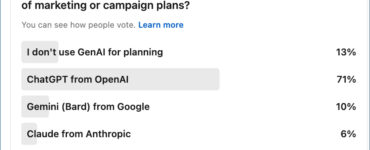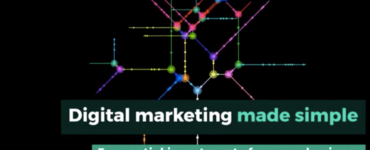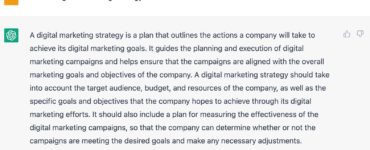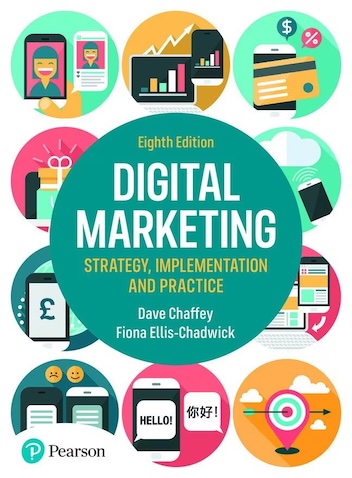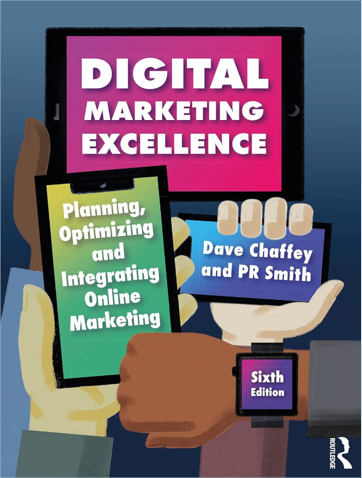Blockchain technology is an example of how it can be difficult to assess the relevance of a major technology innovation.
Blockchain technology definition:
A distributed ledger comprising batches of encrypted transaction records called blocks which can be secured over a peer-to-peer network such as the Internet. The system is secure and transaction history can’t be modified to provide an audit trail.
In their guide to Blockchain, Wired (2019) state: “Depending who you ask, blockchains are either the most important technological innovation since the internet or a solution looking for a problem“.
Certainly, from a marketing communications perspective, it isn’t as relevant to most companies compared to artificial intelligence and predictive analytics, although it may be used to support programmatic media buying. However, there are marketing opportunities for marketing innovation that we review below.
Blockchain technology is a form of cryptography that uses a secure database of groups of transactions that is accessed by different participants to help facilitate different transactions and provide an audit trail.
The original and best-known application of blockchain is Bitcoin, launched in 2008, which is built on a public ledger or database of transactions for which everyone has access to a copy. Bitcoin is a decentralized digital currency or cryptocurrency without a central provider such as a bank or other intermediaries. It involves a process called Bitcoin mining to create a new bitcoin and maintain the transaction ledger by solving a computational puzzle.
Each change to the ledger is cryptographically signed to prove that the person transferring virtual coins is the actual owner of those coins. Bitcoin miners earn a fee for each coin mined, but the cost of high-end technology and electricity costs of thousands of dollars needed to mine a single bitcoin mean that this is a niche activity.
A digital currency or cryptocurrency is a digital or virtual currency that is secured by cryptography, which makes it extremely difficult to counterfeit or double-spend. Many cryptocurrencies are decentralized networks based on blockchain technology
Other industrial applications such as those discussed in the mini case study may involve a private blockchain. Like secure http or https, transactions use public and private keys which ensure security.Example blockchain applications in marketing and business
Technology providers such as IBM are developing diverse applications for Blockchain, many of which focus more on supply chain and logistics management than marketing, but are useful innovations.
Examples of these applications include:
- Henkel’s beauty consumer brands based in Germany have partnered with social enterprise Plastic Bank as part of Henkel’s targets to reduce packaging and promote a circular economy. Blockchain is used to manage payments to people in Haiti who collect plastic since there are limited recycling schemes.
- Nordea, a financial services provider based in Northern Europe has worked with partners in larger European banks to engage in international trading by partnering with other large European banks to develop a trade financing platform, we.trade which will support its small and midsize companies companies who are looking to reduces their risk and administrative cost of doing business with new partners. Patrik Zekkar, Global Head Trade Finance & Working Capital Management, Nordea Bank Abp explained the benefits like this “The partnership with IBM to develop the blockchain solution and the collaboration with the banks, enables us to do things we were not able to do alone. Suddenly, we can reach currently 30% of the European SME markets”
- True Tickets, a US-based B2B service is using Blockchain for event and concert ticketing. Blockchain helps preserves ticket provenance by identifying all buyers and sellers, ensuring that both the tickets and the people buying them are legitimate. Second, the ticketing platform serves as an immutable ledger, allowing artists, venues, promoters and fans to track a ticket through each stage of its lifecycle, from creation to its use at an event. Following the COVID-19 pandemic it can provide a ticketless solution also.
- Mediaocean, a marketing technology company that supports publishers and advertisers with programmatic advertising services has worked with IBM to tackle media supply-chain transparency. This will enables agencies and their clients to view all transactions and fees in the media buying supply-chain and data collection to reduce auditing steps, time, and cost
A new Central Bank Digital Currency (CBDC) based on blockchain technology is also being explored in many countries.
